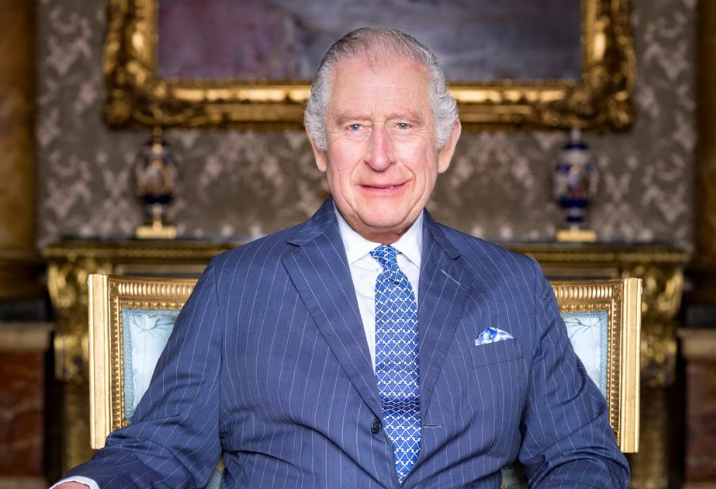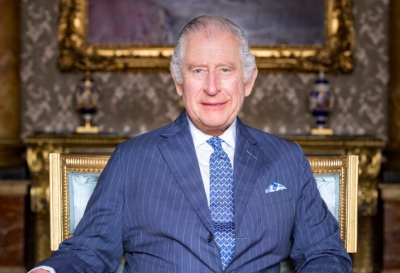King Charles III will be officially crowned tomorrow, Saturday, at Westminster Abbey after months of preparations, with the religious aspect of the ceremony holding a significant place. This ritual is a tradition that the British monarchy has maintained for centuries, and it is being revived in 2023, despite the changing times and the different contexts surrounding the ascension of the king to the British throne and his installation as the head of the Anglican Church.
#### Coronation Ceremony
There is no doubt that royal family events in Britain have transformed over the years into media attractions, whether in weddings or funerals. Between the weddings of William and Harry, and the funerals of the Duke of Edinburgh and Queen Elizabeth II, there has been a concerted effort to showcase the commitment to ancient royal lineages and preserve traditions, despite what the British public may view as a waste of public funds.
#### Generations
However, the coronation of Charles III holds special significance as it is the first of its kind since the coronation of his mother, Queen Elizabeth II, in 1953, or 70 years ago, meaning that new generations will witness a similar event for the first time. Over seven decades, the monarchy has remained stable, but everything around it has changed, particularly its relationship with the church, alongside the changing levels of religiosity among the public in Britain and the religious diversity that has become a characteristic of a society that was largely Christian following the Anglican Church.
#### British Law
British law prohibits the coronation or inheritance of the throne by anyone who is not Protestant. According to the Act of Settlement passed by the English Parliament in 1701, the crown is limited to Protestants who follow the Anglican denomination. Until 2013, the law also barred inheritance by individuals married to Catholics.
#### Religion
According to official statistics, from the most recent census in England and Wales in 2021, less than half the population, around 46.2%, identify as Christians, while 37.2% stated they do not follow any religion, which means approximately one in four. This marks a notable change from the 2001 census, when more than 70% identified as Christians, with those claiming not to follow any religion not exceeding 15%.
The king in Britain holds the title of "Defender of the Faith," a title bestowed by Pope Leo X upon King Henry VIII in 1521, which subsequent monarchs continued to hold even after the Church of England broke from the Catholic Church in the sixteenth century.
#### Head of the Church
Following the separation, the British Parliament established the king as the head of the Church of England, a title that every crowned monarch has held since then, and which Charles III will also carry. The paradox, as noted by several commentators during the months of preparation for the coronation ceremony, is that a large number of Britons who will watch the event on television may need someone to explain what is happening in the cathedral, as most have not actively practiced religious rituals.
In this context, the percentage of people identifying as Muslims in Britain has increased from 4.9% in 2011 to 6.5% in the latest census. Additionally, 2% of the population currently identifies as Hindu, while 2% are divided among Jews, Sikhs, Buddhists, and other religions such as Baha'is and Zoroastrians.
#### Celebration
According to the organizers, the coronation celebration will be an occasion to acknowledge the religious diversity that has become a hallmark of British society. This diversity has been one of the issues shaping Charles's public image for years. In the 1990s, Prince Charles stirred controversy when he stated that upon ascending the throne as his mother’s heir, he would not only be the "Defender of the Faith" but also the "Protector of all faiths," which was interpreted at the time as possibly intending to relinquish the historic title during his oath.
In fact, Charles III will not relinquish his religious titles "Defender of the Faith and Head of the Church of England," as that would require a legal amendment. However, the coronation rituals will witness the participation of representatives from various religions, which is understood as a desire to embrace all beliefs and practices in line with the current structure of British society across all demographics.
According to the announced coronation program, representatives from Shiite and Sunni Muslims, Jews, Hindus, Sikhs, Buddhists, Jains, Baha'is, and Zoroastrians will lead the procession as the king heads to Westminster Abbey on Saturday. At the forefront of the procession will be a cross that Pope Francis gifted to King Charles, said to contain relics from the true cross of Christ. This step signifies overcoming the historical divide and conflicts between the Anglican and Catholic churches and reflects the openness of Christian denominations in Britain towards one another.




